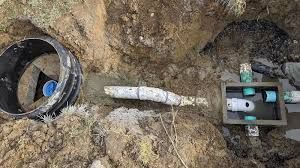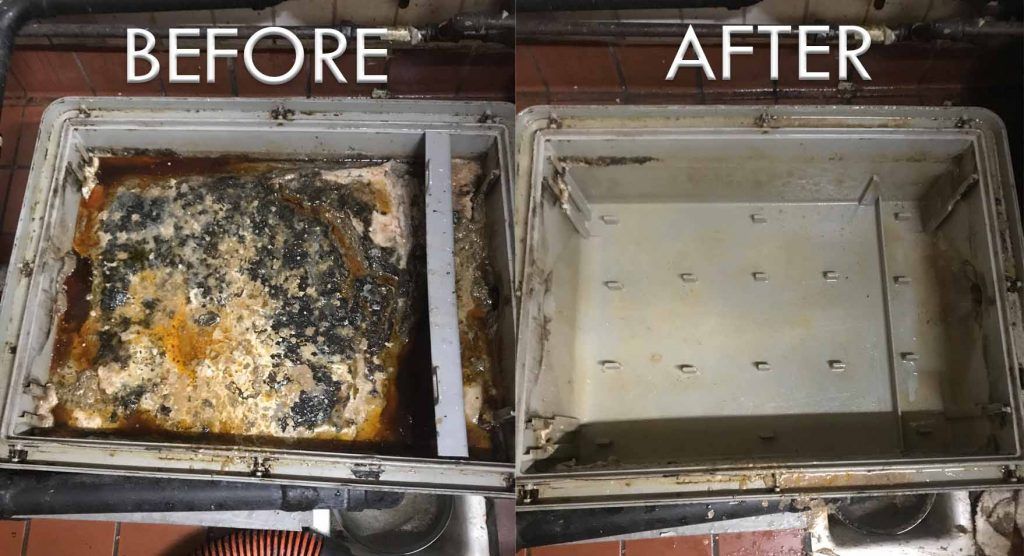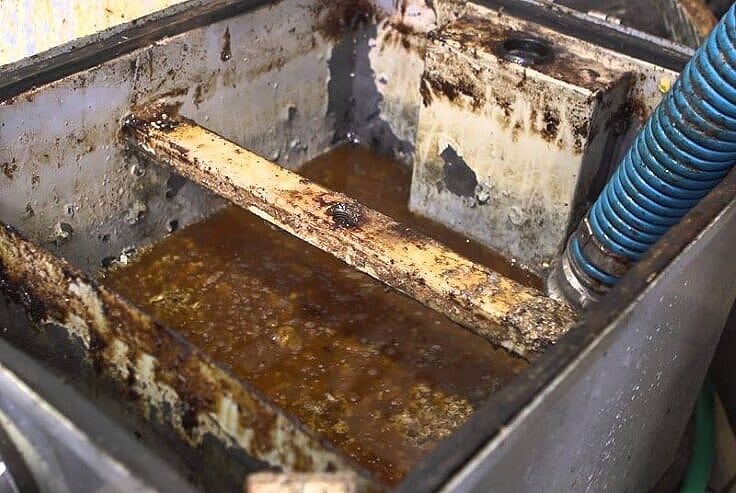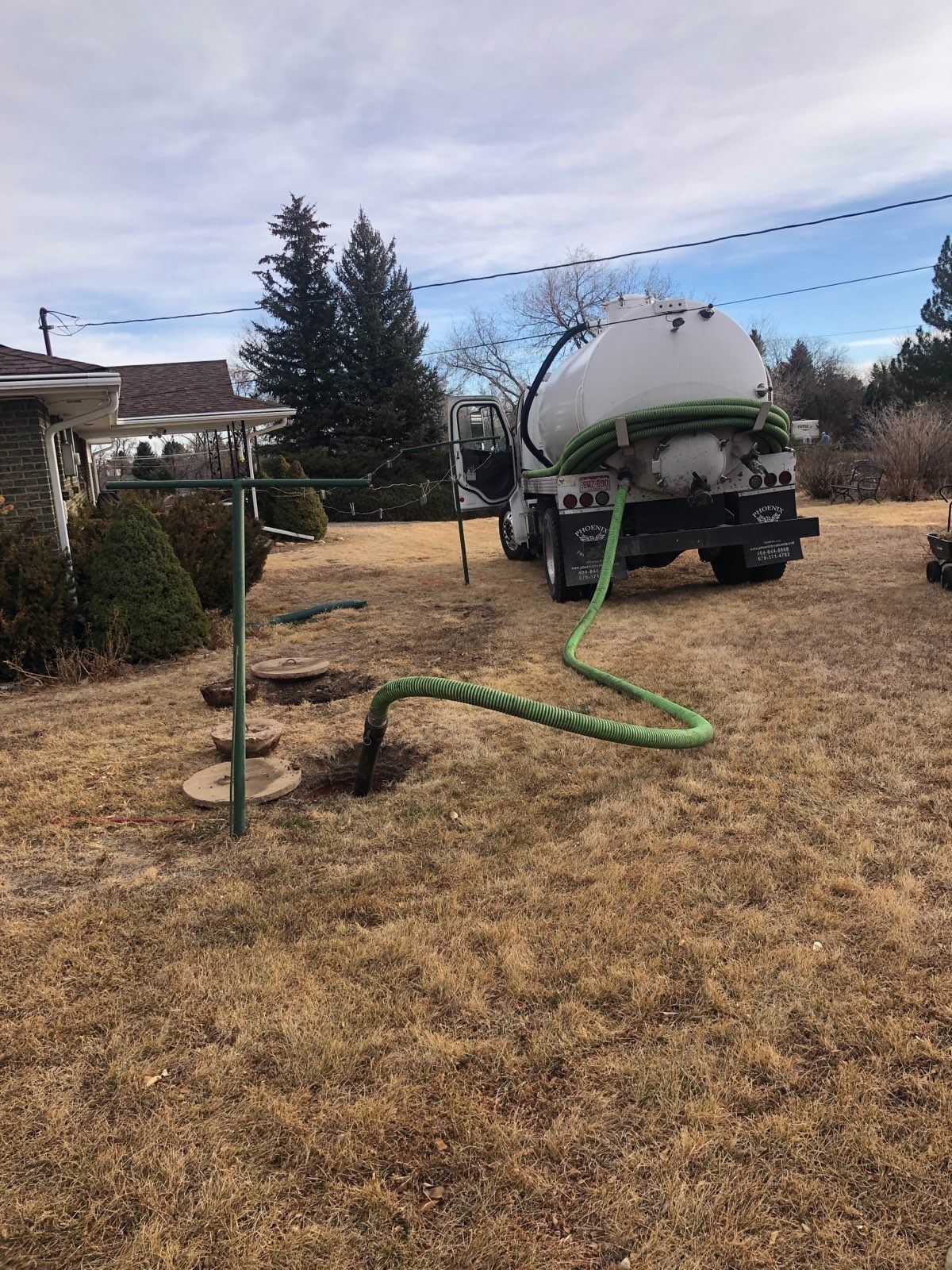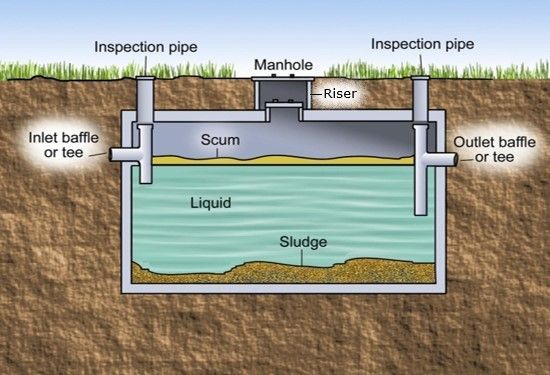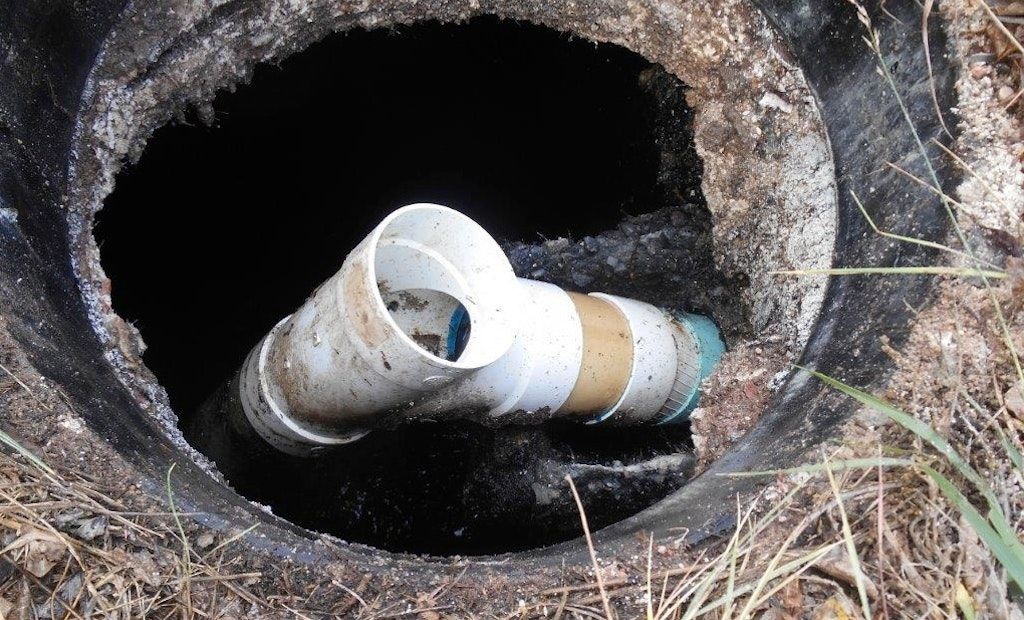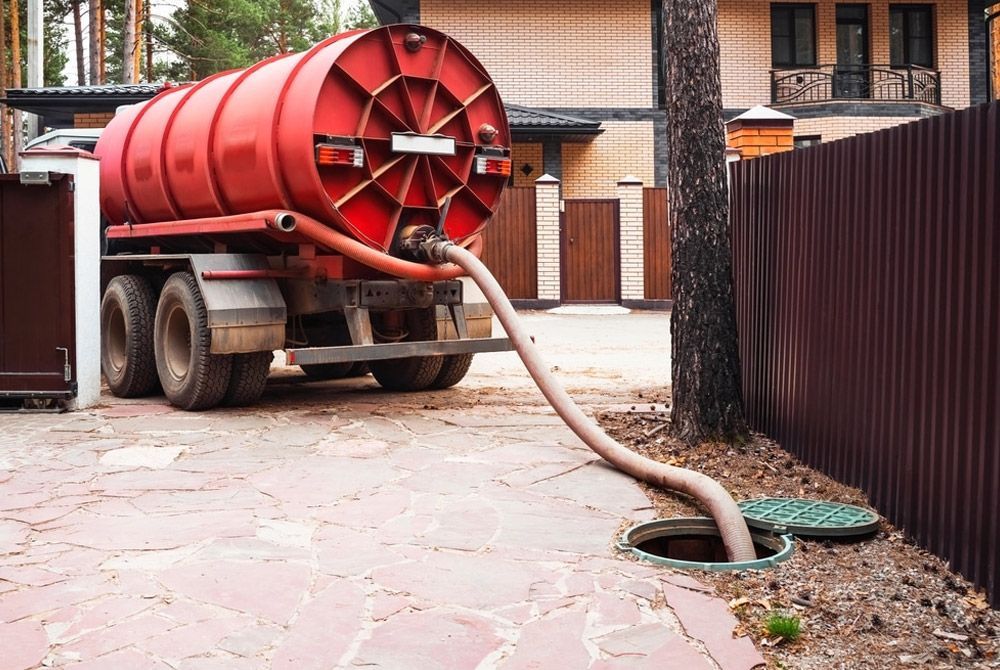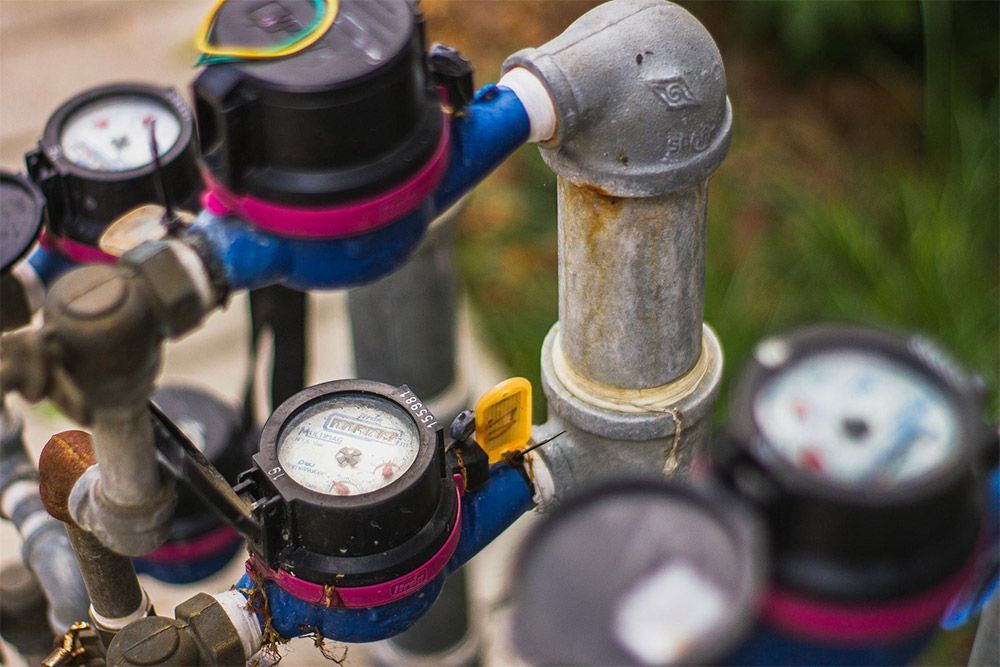Grease Trap Cleaning Near Me in Denver
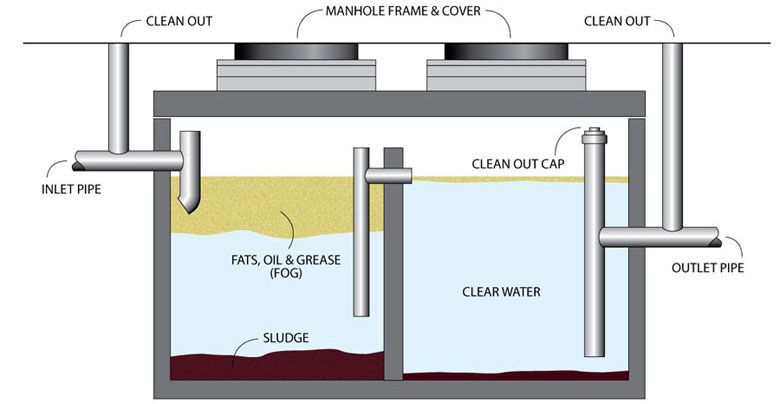
Grease traps are essential components in modern commercial kitchens, ensuring that fats, oils, and grease (FOG) do not enter the wastewater system where they can cause blockages and environmental harm. We understand the importance of proper grease trap maintenance to both comply with regulations and maintain sanitary conditions.
Regular cleaning and servicing of grease traps minimize the risk of sewer backups and costly fines from non-compliance, making it a critical task for any facility that handles food waste.
Selecting the right service for grease trap cleaning is just as crucial as the maintenance itself. We take pride in employing experienced technicians who provide thorough cleaning and pumping services that meet industry standards. Our eco-friendly approach ensures that all grease is disposed of responsibly, and our offering includes routine cleaning schedules tailored to the specific needs of different establishments.
In the realm of grease trap maintenance, we also focus on the installation and proper functioning of grease interceptors, separators, and fat traps. These systems, especially in restaurants and other food service businesses, are fundamental in preventing grease from building up in drain lines. Our comprehensive grease trap services extend from initial installation to regular cleanouts and pumping, guaranteeing functionality and efficiency to keep kitchens running smoothly.
What are Grease Traps& How Do They Work?
Before we explore the specifics of grease traps, it’s important to recognize that their proper maintenance is crucial to the operational efficiency of kitchens, particularly in commercial settings. Grease traps are designed to intercept fats, oils, and grease (FOG) before they enter wastewater systems, thereby playing a pivotal role in preventing blockages and ensuring compliance with health and safety standards.
Types of Grease Traps
Grease traps come in various sizes and types, each serving the same essential function—to trap FOG before it can enter the sewage system. Kitchen grease traps are often smaller and may be found under sinks in commercial kitchens. These traps typically serve individual fixtures. On the other hand, there are also larger grease interceptors, which are installed outside of buildings and can handle the FOG from multiple sources.
When selecting a grease trap for a restaurant, it's vital to consider the capacity and flow rate that matches the amount of FOG produced during operations. This ensures that the grease trap operates effectively and reduces the frequency of cleanouts.
- Passive Grease Traps: Often installed indoors, they require regular maintenance and are suitable for smaller food establishments.
- Automatic Grease Removal Units: These work continuously to separate FOG from water and can remove the FOG automatically.
- Hydro Mechanical Grease Interceptors: They use a flow control mechanism to reduce the rate at which wastewater enters the trap, allowing for effective separation of FOG.
- Gravity Grease Interceptors: These large outdoor units use gravity to separate FOG from wastewater and are common in larger commercial settings.
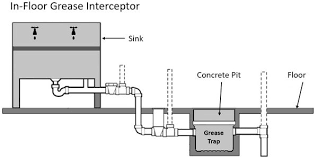
Grease Interceptor
A grease interceptor, sometimes known as a fat trap or grease separator, is a larger version of a grease trap and is typically used in larger establishments or where there's a significant volume of FOG. Grease interceptors are essential in preventing FOG from entering public sewer systems, which can lead to costly and hazardous blockages.
- Capacity: Grease interceptors are available in various sizes, but they all need to be properly sized based on the volume of wastewater and FOG the establishment produces.
- Installation: Professional installation of grease interceptors is crucial to ensure they function correctly and are compliant with local codes and regulations.
In commercial settings, the use of a grease interceptor is a best practice for managing large volumes of FOG efficiently. These units require less frequent cleaning compared to smaller traps but still demand routine maintenance and monitoring to function at peak efficiency.
Grease Trap Maintenance
Proper grease trap maintenance is essential for ensuring efficient operation and preventing costly blockages. Our effective routine includes regular cleaning, inspection, and timely cleanouts.
Cleaning A Grease Trap
We begin by scooping out solidified waste and placing it in a water-tight container. It's important to thoroughly scrape the walls and baffles of the grease trap to remove adhered grease buildup, as this prevents future blockages. Regular cleaning, depending on the amount of grease, is usually required every 30 to 90 days.
Grease Trap Cleaners Near Me
Finding Local Grease Trap Cleaners Near You is crucial for timely and regular maintenance. By searching for 'grease trap cleaners near me,' we can locate professionals who are experienced and can respond swiftly to service requests. This ensures that we are always in compliance with local regulations and maintaining our traps effectively.
A scheduled cleanout involves a comprehensive pumping service to remove all the contents of the grease trap. During these cleanouts, we also inspect the flow of the trap, check for leaks, and replace any damaged parts. This regular service keeps the grease trap functioning properly and often includes a full condition report for our records.
Emergency Grease Trap Services
When urgent issues arise with your grease trap, we provide emergency grease trap services to address and resolve the problem swiftly. Neglect and overflow can lead to severe backups and health hazards. Our emergency services ensure that your business remains operational and complies with local regulations.
Emergency grease trap services
- Immediate Response: We prioritize swift action to minimize downtime.
- 24/7 Availability: Our teams are ready around the clock to assist with emergencies.
- Expert Technicians: Highly skilled professionals equipped to tackle even the most challenging issues.
Emergency grease trap overflowing:
- Overflowing grease traps
- Severe clogs causing backups
- Unpleasant odors indicating imminent blockage
- Systems not operating correctly
Emergency grease trap innspection
1. Assessment: Quick evaluation of the situation to determine the best course of action.
2. Pumping: Removal of all contents from the grease trap to prevent spillage and further complications.
3. Cleaning: Thorough cleaning to remove buildup, ensuring smooth operation.
4. Inspection and Repair: Checking for damages and performing necessary repairs on the spot.
We adhere to environmental regulations when disposing of waste, maintaining both efficiency and sustainability. If emergency services are needed for your commercial grease trap or kitchen grease trap, do not hesitate to reach out. Remember, maintaining a grease trap is essential for the uninterrupted operation of your restaurant or food establishment.
Keeping your grease trap in optimal condition through regular maintenance can help prevent the need for emergency services. However, we understand that issues can arise unexpectedly, and we're here to help when they do.
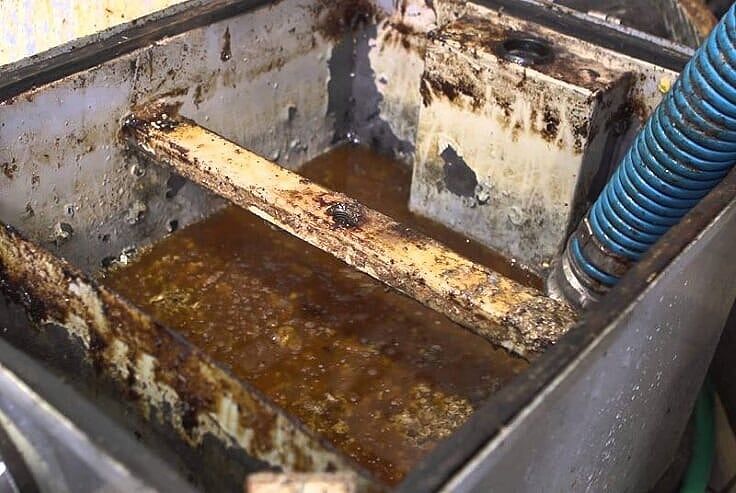
Grease pit cleaning is an essential maintenance task for any commercial kitchen or restaurant, ensuring that operations run smoothly and in compliance with health regulations. A grease trap, often installed beneath the kitchen, captures fats, oils, and greases (FOG) from wastewater, preventing them from entering and clogging the sewer system.
Over time, the accumulation of FOG necessitates professional pumping and cleaning to maintain the grease trap's efficiency and to avoid unpleasant odors, backflows, or even fines from regulatory bodies.
The process of grease pit cleaning involves the removal of accumulated grease and sludge from the trap. This is typically achieved through pumping, a method that extracts all the contents of the grease trap for proper disposal. Regular cleaning not only extends the lifespan of a grease trap but also prevents potential blockages in the plumbing system that can disrupt a restaurant's operations.
Furthermore, adhering to a scheduled maintenance plan can help restaurant owners avoid emergency pumping services, which can be costly and disruptive. Ensuring efficient and quality grease trap maintenance, we prioritize professional service and thorough training of our technicians. Our aim is to provide top-notch grease trap services for commercial establishments.
Grease Trap Cleaning Services
We offer comprehensive grease trap cleaning services designed for the unique demands of commercial kitchens. Our grease trap cleaner services include.
- Regular Maintenance: To prevent clogs and ensure efficient operation, regular cleanouts are necessary.
- Pumping: Removing built-up fats, oils, and grease (FOG) to maintain flow and prevent backups.
- Scheduled Cleanings: Establishing a consistent service schedule to manage grease waste effectively.
- Emergency Services: We stand ready to assist with unexpected blockages or overflows around the clock.
Our Grease trap cleaners are equipped with the latest tools and have undergone extensive training to handle professional grease trap cleaning efficiently.
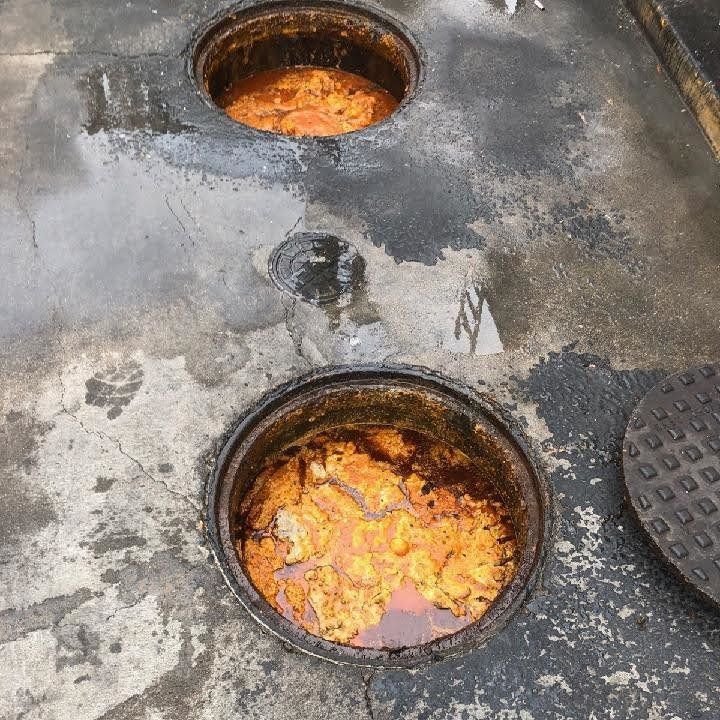
Grease Trap Service Near Me
To simplify locating professional grease trap services near you, we've streamlined the process. When searching for 'Grease Trap Service Near Me', consider the following:
Proximity: Close proximity ensures faster response times for both scheduled services and emergencies.
Licensing: Ensure the service is properly licensed for grease waste hauling and disposal.
Experience: Look for companies with demonstrated experience in servicing grease interceptors and traps.
Customer Support: A responsive service that offers assistance and answers when you need them.
We take pride in providing a professional service that caters to the locality and specificity of your commercial kitchen's needs.
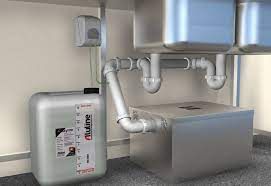
Grease Trap Installation
When we consider installing a grease trap, our primary goal is to ensure the efficient interception of fats, oils, and grease (FOG) from the wastewater in kitchens before it enters the sewage system. It is crucial for restaurants, hotels, and any commercial food establishment to install a high-quality grease interceptor to avoid plumbing blockages and environme
Choosing the Right Size & Type 0f Grease Trap
- Calculate flow rate: We assess the size of the establishment and estimate the flow of wastewater to determine the appropriate size.
- Space assessment: We consider the space available for installation to decide whether an indoor or outdoor grease trap is suitable.
1. Sealing: We use high-quality seals and gaskets to prevent leaks around the connections.
2. Venting: Proper venting is installed to prevent backpressure and ensure the system works efficiently.
Grease Trap Testing:
- Our team performs a thorough test to check for leaks and to ensure the trap is functioning correctly.
- We provide guidance on maintenance schedules to avoid common issues like clogs or overflows.
Grease Trap Installation Documentation:
- We document all installation details for future maintenance and service requirements.
- Compliance with local health and safety standards is confirmed, with all necessary paperwork completed.
In our practice, we prioritize efficiency and effectiveness in grease trap installation to ensure the longevity and reliability of the system.
Grease Traps for Restaurants in Denver
In Denver, as with other cities, restaurants are required to have grease traps installed to intercept fats, oils, and grease from wastewater before it enters the sewer system. We understand the importance of timely grease trap pumping services that cater specifically to the bustling restaurant industry of Denver.
Regular pumping not only prevents costly blockages but also avoids potential fines and interruptions to business operations due to non-compliance with local regulations.
- Pumping Frequency: The frequency of pumping depends on the capacity of the grease trap and the volume of grease a restaurant produces. We recommend scheduling regular pumping to ensure efficient operations.
- Pump Technology: We utilize high-powered pumping equipment to effectively remove grease and sludge buildup from traps.
- Disposal Methods: Post-pumping, we follow environmentally responsible disposal methods to manage the waste in compliance with Denver's regulations.
By maintaining your grease interceptor with our expert pumping services, restaurants in Denver can continue to operate smoothly without the worry of grease-related plumbing issues.
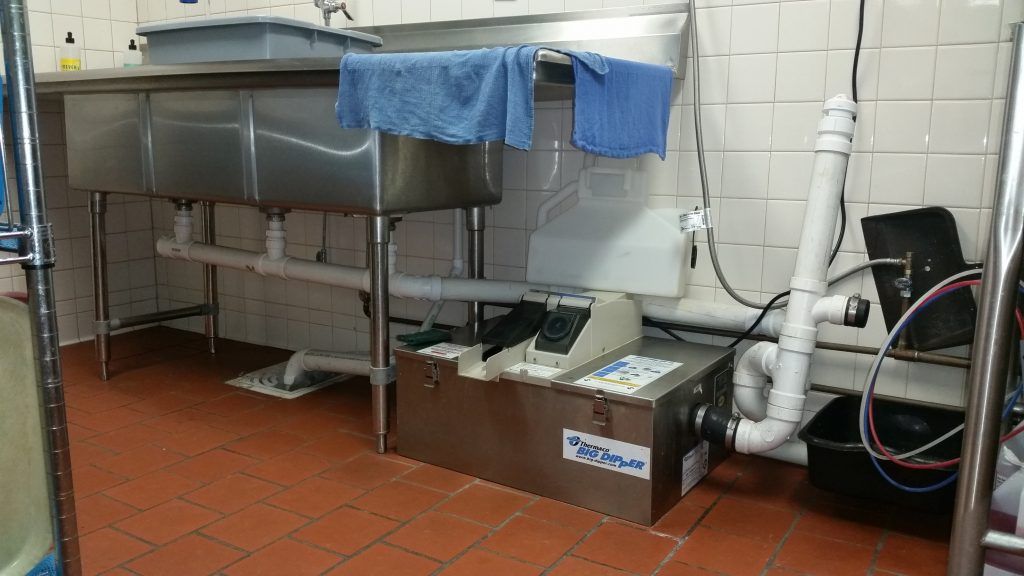
Restaurant Grease Trap
In the food service industry, we recognize that a well-maintained grease trap is integral to keeping a kitchen running smoothly. Grease traps, also known as grease interceptors, are essential devices used in restaurant kitchens to prevent fats, oils, and grease (FOG) from entering the plumbing system and causing blockages.
Installation: Typically installed beneath the kitchen sink, we ensure that grease traps are adequately sized based on the volume of waste our restaurant kitchens produce. This is crucial for the system's efficiency.
Functionality:
- Traps FOG before it enters wastewater
- Helps avoid clogged drains
- Mandatory by law in many areas
Maintenance:
- Clean regularly, recommended every 1-3 months
- Schedule depends on FOG volume
- Use professional cleaning services to ensure thoroughness
Pumping: Regular pumping and cleaning by licensed technicians ensure not only compliance with health regulations but also the longevity of the plumbing systems.
Indicators of Full Grease Trap:
- Slow draining sinks
- Unpleasant odors
- Overflow of water in the area of the trap
We utilize services that provide full evacuation, cleaning, and pumping without the use of harmful chemicals, ensuring that we adhere to environmental standards while maintaining our systems.
Commercial Grease Trap Services
- Inspection and assessment
- Cleaning and pumping out the contents
- Disposal according to environmental regulations
It's pivotal for us to partner with reliable grease trap service providers to keep our operations uninterrupted and environmentally sound.
Kitchen Grease Trap
In commercial kitchens, we understand the importance of maintaining a grease trap, which is a critical component for keeping plumbing systems running smoothly. The primary function of a kitchen grease trap is to intercept fats, oils, and grease (FOG) from the wastewater before they enter the sewage system. Without a grease trap, these substances could solidify and cause blockages leading to expensive repairs.
Grease Trap Maintenance Routine
- Traps FOG before it enters wastewater
- Helps avoid clogged drains
- Mandatory by law in many areas
Grease Trap Maintenance
- Clean regularly, recommended every 1-3 months
- Schedule depends on FOG volume
- Use professional cleaning services to ensure thoroughness
Grease Trap Pumping
Regular pumping and cleaning by licensed septic pumping experts ensure not only compliance with health regulations but also the longevity of the plumbing systems.
Indicators of Full Grease Trap:
- Slow draining sinks
- Unpleasant odors
- Overflow of water in the area of the trap
We utilize services that provide full evacuation, cleaning, and pumping without the use of harmful chemicals, ensuring that we adhere to environmental standards while maintaining our systems.
Commercial Grease Trap Services
The services available typically include:
- Inspection and assessment
- Cleaning and pumping out the contents
- Disposal according to environmental regulations
It's pivotal for us to partner with reliable grease trap service providers to keep our operations uninterrupted and environmentally sound.
Kitchen Grease Trap
In commercial kitchens, we understand the importance of maintaining a grease trap, which is a critical component for keeping plumbing systems running smoothly. The primary function of a kitchen grease trap is to intercept fats, oils, and grease (FOG) from the wastewater before they enter the sewage system. Without a grease trap, these substances could solidify and cause blockages leading to expensive repairs.
Grease Trap Maintenance Routine
We recommend regular cleaning and maintenance to prevent overflows and maintain efficiency:
- Inspection: Perform weekly checks to monitor FOG levels.
- Cleaning: Schedule cleaning when the grease accumulation reaches 25-30% of the trap capacity to avoid blockages.
- Pumping: Engage professionals to pump out and clean the trap thoroughly, typically every 1-3 months depending on usage.
Best Practices for Kitchen Staff
- Scrape plates before washing
- Avoid letting food scraps enter the drain
- Use sink strainers
- Dispose of oils and grease properly, not down the sink
Types of Traps We Handle
- Under-sink traps: Common in smaller kitchens
- High-capacity interceptors: For larger establishments
When installing a new kitchen grease trap, we ensure it meets the required local regulations and size specifications for your kitchen’s needs. Proper installation and maintenance.
Affordable Grease Trap Cleaning & Maintenance in Denver, CO
At Affordable Septic Pumping, we are grease trap experts with a team of master plumbers with over 20 years of combined experience in Grease Trap Cleaning & Pumping, grease trap services, septic tank location services, sewer and/or water line inspection in addition to repairs. We have enjoyed the years spent serving the state of Colorado and all of the Denver area. Call us at 720-427-7557
